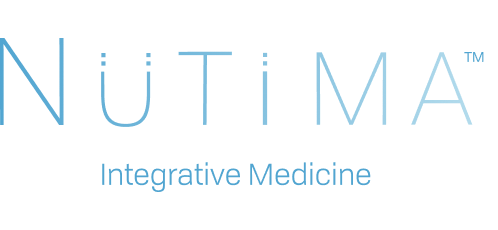Prostate cancer cells, like many types of cancer (notably breast), have a different metabolic system than healthy cells. Healthy cells primarily use oxygen to make energy, which also requires a lot of the molecule known as citrate. Prostate cancer cells do not; instead they use a system that doesn’t require oxygen and doesn’t use citrate but instead uses choline (Johansson, et al. 2009). Avoiding foods high in choline may be important for reducing the risk of existing prostate cancer from getting worse/more aggressive.
There are many imaging techniques that take advantage of this fact to look for prostate cancer around the body, including what is known as magnetic resonance spectroscopy (a fancy form of MRI) and positron emission testing (PET) that uses radioactive choline (Scheenen, et al. 2004). This is further evidence of the importance of choline to prostate cancer cells, and why avoiding it in the diet might therefore be a good idea.
Two large epidemiological trials have looked at the connection between high choline foods and prostate cancer aggravation (Richman, et al. 2012 and 2010). High intake of eggs and chicken were particularly associated with increased risk of men who already had prostate cancer developing aggressive disease (as evidenced by the cancer spreading or killing them among other bad outcomes). These studies were done prospectively, which is strong, but they were not randomized clinical trials so they cannot definitively prove that it was the choline or the foods that contain them that caused. It is important to note that so far, no one has shown that choline increases the risk of getting prostate cancer in the first place, this is really just about worsening existing cancer.
For many decades natural medicine experts have advocated a more vegetarian diet for men with prostate cancer. This was based around research showing that high animal-product diets (except fish) tended to both cause and worsen prostate cancer, and that vegetarian diets were helpful (Ornish, et al. 2005). While a lot of effort focused on red meat, preserved meats (lunch meats, sausages, bacon, etc.) and burned meats (as the burning process creates a lot of carcinogens), it is now getting clearer that poultry and eggs may be just as bad if not worse.
The highest choline-rich foods are:
| Egg yolks (egg whites are fine) |
| Organ meats |
| Wheat germ |
| Chicken |
| Pork |
| Beef |
| Cow milk and related products (butter, yogurt, etc.) |
Men with prostate cancer are urged to eat what is known as a pescovegan diet (no animal products except fish; no simple sugars; most foods in the diet should be vegetables, fruits, nuts and legumes) most of the time based on the totality of existing information. Supplements that contain choline or phosphatidylcholine should be avoided. This information is not perfect and further studies could weaken this recommendation, but for now it looks like the best advice. Every man should consult with their natural medicine expert who knows both prostate cancer and nutrition to determine if this diet is optimal for them. Men who are losing a lot of weight with advanced cancer may in particular not do well on a diet like this. But most others will, even if they can only follow it some of the days of the week and not all.
References
Johansson M, Van Guelpen B, Vollset SE, et al. (2009) “One-carbon metabolism and prostate cancer risk: Prospective investigation of seven circulating B vitamins and metabolites” Cancer Epidemiol Biomarkers Prev 18(5):1538-43.
Ornish D, Weidner G, Fair WR, et al. (2005) “Intensive lifestyle changes may affect the progression of prostate cancer” J Urol 174(3):1065-9; discussion 1069-70.
Richman EL, Kenfield SA, Stampfer MJ, et al. (2012) “Choline intake and risk of lethal prostate cancer: Incidence and survival” Am J Clin Nutr 96(4):855–863.
Richman EL, Stampfer MJ, Paciorek A, et al. (2010) “Intakes of meat, fish, poultry, and eggs and risk of prostate cancer progression” Am J Clin Nutr 91(3):712-21.
Scheenen TW, Klomp DW, Roll SA, et al. (2004) “Fast acquisition-weighted three- dimensional proton MR spectroscopic imaging of the human prostate” Magn Reson Med 52:80–88.
